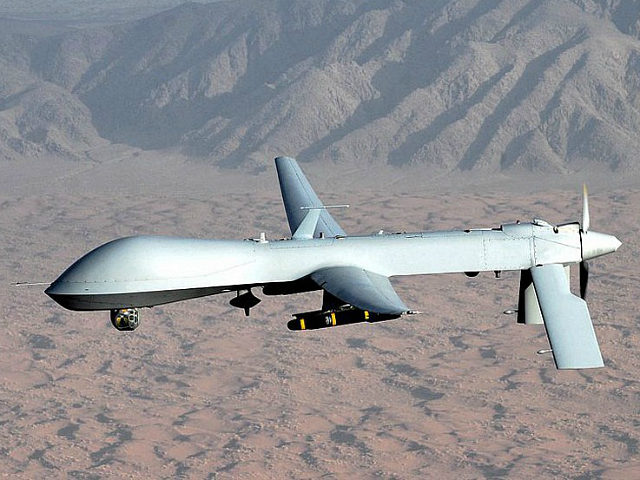The White House, in response to an American Civil Liberties Union (ACLU) lawsuit, on Friday night unveiled a redacted version of a previously secret 18-page document that outlines how Barack Obama chooses and approves potential drone targets.
Referring to the disclosed document known as the Presidential Policy Guidance (PPG), Courthouse News Service (CNS) reports:
The redacted drone-strike ‘playbook’ says that strikes may be used against terrorist targets when there is ‘near certainty that a lawful target is present,’ ‘near certainty that non-combatants will not be injured or killed,’ and when the ‘target poses a continuing, imminent threat to U.S. persons.’
President Barack Obama’s approval is required when drone strikes target a U.S. citizen or when administrative officials disagree on whether a non-American target should be killed.
The PPG document states:
If the principal of the nominating operating agency, after review by principals and deputies, continues to support the operational plan, the plan shall be presented to the president for decision, along with the views expressed by departments and agencies during the [National Security Council] process. An appropriate [National Security Staff] official will communicate, in writing, the president’s decision, including any terms or conditions placed on any approval to appropriate departments and agencies…
The president will adjudicate any disagreement among or between principals.
When Obama adopted the “playbook” in May 2013, his administration published a brief “fact sheet” that only described the 18-page document despite the president pledging greater transparency at the time.
CNS notes:
The ACLU filed a Freedom of Information Act lawsuit last year seeking the full document, and U.S. District Judge Colleen McMahon questioned in February whether the PPG could be withheld in its entirety.
The federal government said in a March 4 letter that it wouldn’t fight to keep the PPG secret and would prepare a redacted version for court review.
ACLU Deputy Legal Director Jameel Jaffer welcomed the Obama administration’s decision to release the drone policy guidelines but noted that the document should have been made public in May 2013.
Jaffer said:
The PPG provides crucial information about policies that have resulted in the deaths of thousands of people, including hundreds of non-combatants, and about the bureaucracy that the Obama administration has constructed to oversee and implement those policies.
The PPG should have been released three years ago, but its release now will inform an ongoing debate about the lawfulness and wisdom of the government’s counterterrorism policies. The release of the PPG and related documents is also a timely reminder of the breadth of the powers that will soon be in the hands of another president.
One of Obama's legacies: a bureaucratic infrastructure for targeted killings. https://t.co/FwDEymQP9x @ACLU pic.twitter.com/bsz3xbpjwZ
— Jameel Jaffer (@JameelJaffer) August 7, 2016
In a press release, the ACLU points out:
Questions remain about where the PPG applies, whether the president has waived its requirements in particular instances, and how the PPG’s relatively stringent standards can be reconciled with the accounts of eye witnesses, journalists, and human rights researches who have documented large numbers of bystander casualties.
The Obama administration continues to ardently defend its drone policy.
Ned Price, a spokesman for the White House’s National Security Council, declared in a statement released Saturday that the guidelines provide “protections for civilians that exceed the requirements of the law of armed conflict.”
“As the president has said, ‘near certainty’ is the ‘highest standard we can set,'” he also said, adding that the U.S. “takes feasible precautions to minimize the risk of civilian casualties” even when the U.S. is not operating in conditions covered by the guidance “or when we act quickly to defend U.S. or partner forces from imminent attack.”
US releases redacted drone strike ‘playbook’: National Security Council spokesman Ned Price stressed that the… https://t.co/5AyBDStlIU
— NEWS OF WORLD (@DrAmirulAmin) August 7, 2016
Steven Bucci, a visiting fellow at the Heritage Foundation, described the drone policy as a “recipe” for disaster, reports the Boston Herald.
“The bad guys know all they have to do is hang around their families and they have a bubble of protection around themselves,” said the expert. “While America does its darndest not to hurt innocent people, a policy like that basically gives [terrorists] a recipe on how to protect themselves.”
In July, the Obama administration reported that it has killed up to 116 civilians, as well as between 2,372 and 2,581 combatants in drone and other lethal airstrikes targeting terrorists outside principal war zones like Syria, Iraq, and Afghanistan.

COMMENTS
Please let us know if you're having issues with commenting.